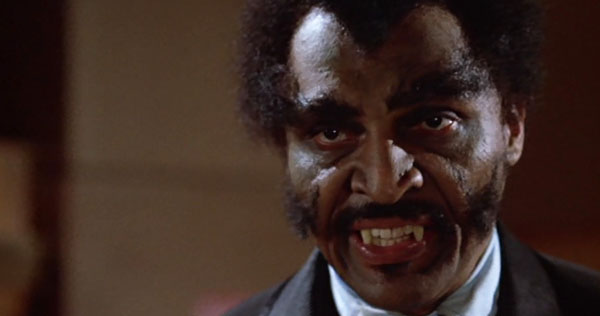The combination of traditional horror story and blaxploitation film does not make for the most spectacular of cinematic feats, particularly in the case of William Crain’s 1972 offering, Blacula. The conflation of themes, genres and tropes creates a messy work: classical texts, occult phenomena, civil rights, tragic love – the film covers many topics yet penetrates none, dissipating into the farcical quickly. The originality of the concept and shamelessness of its execution, however, gives the film some redeeming features.
The plot focuses on the plight of Mamuwalde, an 18th century African Prince, sent – with his wife, Luva – to the castle of Count Dracula to campaign against the slave trade in Nigeria. Once there he is victim not only to the scorn and racism of the Count, but also his vampiric thirst. He is cursed and confined to a coffin for two centuries, while Luva is imprisoned in the tomb to die a slow and mortal death. Awaking in 1970s America, Mamuwalde meets Tina, who he believes to be the reincarnation of his adored wife; needless to say their love is doomed from the start. It has the bare bones of a poignant and contemporary tragedy, yet, due to an expository script and formulaic structure, is reduced to a superficial and somewhat comical drama.
The filmmaker’s preference for awkward close-ups, shaky zooms and incongruous jump cuts serve to reinforce the film’s amateur quality. It is make-up, however, that ultimately prevents an audience from taking the film even a little seriously – the horror genre reduced to little but ghoulish fancy dress. Countering this are some fantastic seventies ‘rags’ and a soul/funk soundtrack, making the whole film feel like a kitsch and slightly dated Halloween party.
Strong performances from William Marshall (Mamuwalde) and Thalmus Rasulala (leading detective, Dr. Gordon Thomas) offer some salvation. Women, however, play either marginal, hysterical or dead characters of little depth and even less interest. In general, it’s best to take the film with more than a pinch of salt and to embrace its outrageous, tacky qualities.
